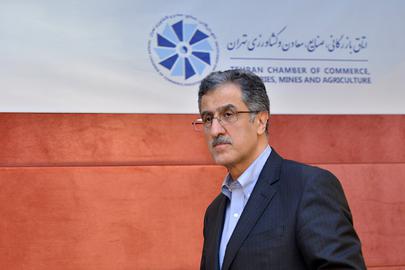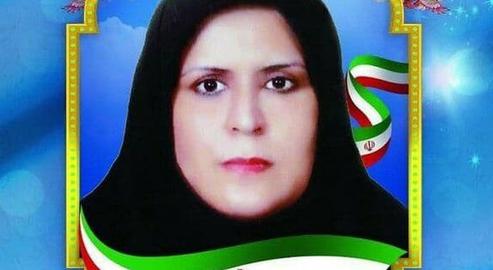Iranians continue to suffer from debilitating economic misery. This has been intensified in recent years by Iran’s inability to attract capital on the one hand, and the outflow of capital on the other.
The situtation is reflected in the reduction of people’s access to necessary goods — how much food they have, how easy it is to heat and light their homes, their ability to provide shelter and a safe living space for their families, and so on.
But why is capital not safe in Iran? How safe are investments in Iran’s provinces? Official publications in Iran, while monitoring the security of capital in various provinces, have also warned of security threats in the current environment.
***
For years, Iran's economy has not only not been able to attract an acceptable amount of foreign investment, but has also seen its capital flow out of the country on a daily basis.
Massoud Khansari, chair of the Tehran Chamber of Commerce, said in mid-February 2021 that US$100 billion had flowed out of Iran in the last two years.
According to Khansari, part of this money was spent on people buying property in Turkey, the United Arab Emirates and Georgia. However, this is only part of the huge investments leaving the country for various reasons, and there is no prospect of their return.
Two years ago, the Parliamentary Research Center estimated that more than $59 billion in what it termed “capital" had flowed out of Iran between 2016 and 2017.The center has now published a new report that states the security situation in the 31 provinces of Iran has worsened in comparison with previous years.
According to the new report, in spring 2020, the overall index of investment security in Iran was 6.16, on a scale where the worst situation is represented by the figure 10.
The report acknowledges that in Iran, "property rights" are not sufficiently guaranteed and people’s rights pertaining to material and intellectual property are often violated without the possibility of effective, low-cost and rapid ways for these rights to be re-enstated and enforced under law.
The Parliamentary Research Center defines general property rights as "the right of citizens to enjoy the exclusive benefit or benefits of work or goods and services that have been accessed by legal or normative means."
The research center reports that the majority of violations of economic rights are carried out as part of the “fulfilment of national officials’ promises" and the "fulfillment of local officials’ economic promises”.
However, one significant change in early 2020 when compared to the findings of 2019 was the degree of disruption caused by foreign sanctions. This was listed as the fourth most serious problem among the factors affecting the investment economy.
The report also states that in early 2020, the provinces of Tehran, Khorasan Razavi and Qom experienced the most unfavorable economic situations respectively, and that, for business owners, the provinces of Yazd, South Khorasan and Golestan had the best security investment situation compared to other provinces.
In the winter of 2019, the provinces of East Azerbaijan, Tehran and Alborz had the most unfavorable situations respectively, and the provinces of Yazd, Kohgiluyeh, Boyer-Ahmad and South Khorasan, respectively, enjoyed the most suitable investment security situation compared to other provinces.
Investment Security in Nine Economic Sectors
The report, which looks at 2019 and early 2020 and conditions prior to the coronavirus pandemic, cites information provided by business owners, who revealed that the hotel, restaurant, and food catering sector enjoyed the healthiest investment situation compared with other businesses in Iran operating in winter 2019.
The most unfavorable situation was experienced by the communications and distribution sector — meaning transportation, warehousing, wholesale and retail.
The oil and gas sector ranked second, and Iran’s economic reliance on the sector has been obvious.
This report also assess the situation in the provinces with regard to the nine economic sectors. Overall, investment security outside the capital Tehran was more unstable; all provinces outside the capital suffered from poor investment in winter 2019.
The report’s findings have been confirmed by analysis produced by other relevant institutions and research groups, and by studies published by other regulatory or governmental bodies.
The latest issue of The Journal of National Security, which is affiliated to the University of National Defense, also looks at investment security in Iran, and specifically at the indicators that determine and contribute to this deterioration.
The journal assesses the unfavorable investment security situation in 31 provinces in Iran, and includes recommendations for the National Security Council for improvement of investment security in each province, addressing each of the indicators.
Many of these security proposals are based on the circumstances of each province, and the report’s chief purpose is to make security institutions aware of a series of factors that, according to its research, endanger the security of investment in each province.
The journal’s analysis points to Tehran, Khuzestan, Khorasan Razavi, Bushehr, Hormozgan and Isfahan as particularly important provinces to focus on in terms of investment security; some of these same places are highlighted in the Parliamentary Research Center report as provinces suffering from low investment security.
The Iranian Cooperatives Chamber also published a report in 2020 stating that Iran is one of the most risky countries in terms of investment. "The situation for foreign direct investment in the country is not suitable,” the report read.
The chamber also suggested that "all agencies should consider significant concessions to foreign investors in Iran."
According to Tehran Chamber of Commerce, in 2018 the inflow of foreign direct investment in Iran amounted to $3.5 billion, showing a decrease of about 31 percent compared to 2017.
Some link the emergence of such a complex and worrying situation in Iran’s economy to the intensification of international sanctions. Other studies and data, however, show that corruption and inefficiency are the driving causes of economic misery for Iranian people, indicators that officials regularly try to hide behind the very real, but not always the most damaging, contributing factor of sanctions.
visit the accountability section
In this section of Iran Wire, you can contact the officials and launch your campaign for various problems


























comments